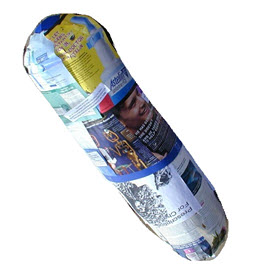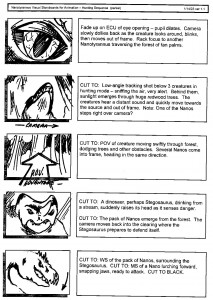Introducing the second post in our Hack and Yack series on multimodal composition from Amy Braziller and Elizabeth Kleinfeld. Enjoy!
***
So you’ve committed to a multimodal approach. You’re trying to figure out how to modify your traditional writing assignments to include genre and mode options. Our first piece of advice is to stop right there. Stop.
Avoid the temptation to retrofit traditional assignments to accommodate a multimodal approach. Retrofitting existing assignments may be efficient, but it allows you to bypass the important thinking you need to do to create purposeful and well-crafted multimodal assignments. Consider a typical first-year-writing assignment:
Write an account of a particular incident or encounter in your life that in some way illustrates a stage of growing up (at any age) or of personal development.
Simply modifying this to read

Record an audio essay about a particular incident or encounter in your life that in some way illustrates a stage of growing up (at any age) or of personal development.
does nothing to support students in sorting through the rhetorical situation presented by the prompt. Furthermore, just as “writing an account” of an incident fails to have students consider who would be interested in such an account and why the essay format might be appropriate, telling students to “record an audio essay” simply replicates the a-rhetorical nature of the original assignment. Consider the affordances of an audio essay. How can tone emphasize the experience? How might silences be used to highlight any transformations?
Whereas a traditional approach to writing instruction may take for granted that “the essay” or “the research paper” is the most appropriate genre and a print alphabetic text is the most appropriate mode, a multimodal approach hinges on interrogating these assumptions. As you think about what you want students to compose and how, keep the following in mind:
1. Consider the goals for the assignment—what skills do you want students to develop by completing this assignment? Think about class activities that will help students develop these skills and draft the components of their multimodal projects. For example, if students will be creating videos, you might want to do a storyboard workshop.
2. Consider limiting genre/mode/media choices so that  students are all working with similar modes. Students can then help each other as you work through the process. Remind students regularly that the audience and purpose of the communication should guide decisions about genre, mode, and media. Students may be excited about more exotic technologies and may need to be reminded of simpler technologies when appropriate.
students are all working with similar modes. Students can then help each other as you work through the process. Remind students regularly that the audience and purpose of the communication should guide decisions about genre, mode, and media. Students may be excited about more exotic technologies and may need to be reminded of simpler technologies when appropriate.
3. Discuss models of the types of projects you want students to develop and help them understand the processes that led to the final products. Students are familiar with podcasts and videos, but few of them are familiar with the processes that lead to the finished products.
4. Require students to reflect in writing on their choices. This not only emphasizes the rhetorical situation for the students, but also helps you understand their choices. You might also add a component that asks students to rethink genre/mode/medium in relation to another audience or purpose, such as community members, people on the opposite side of the argument, voters, etc.


